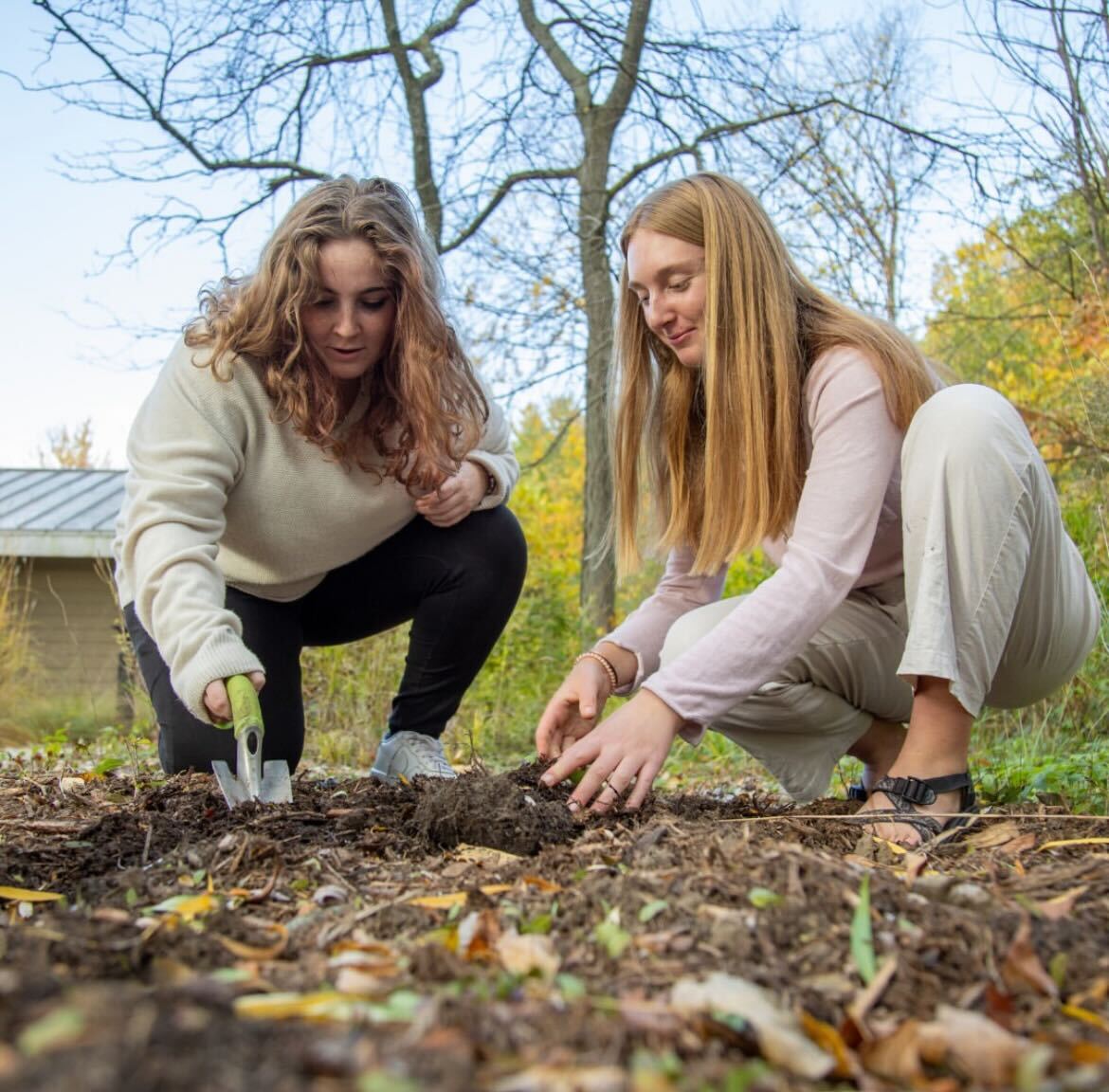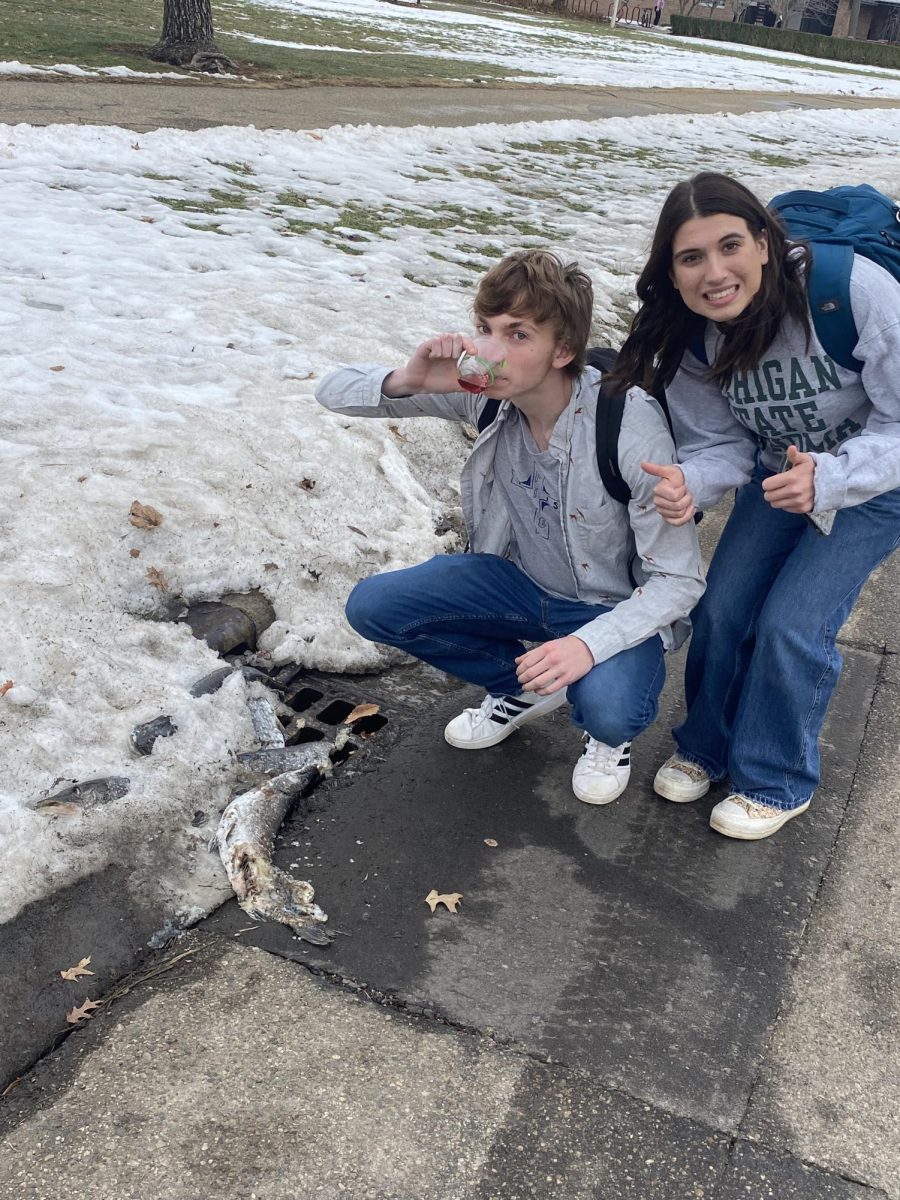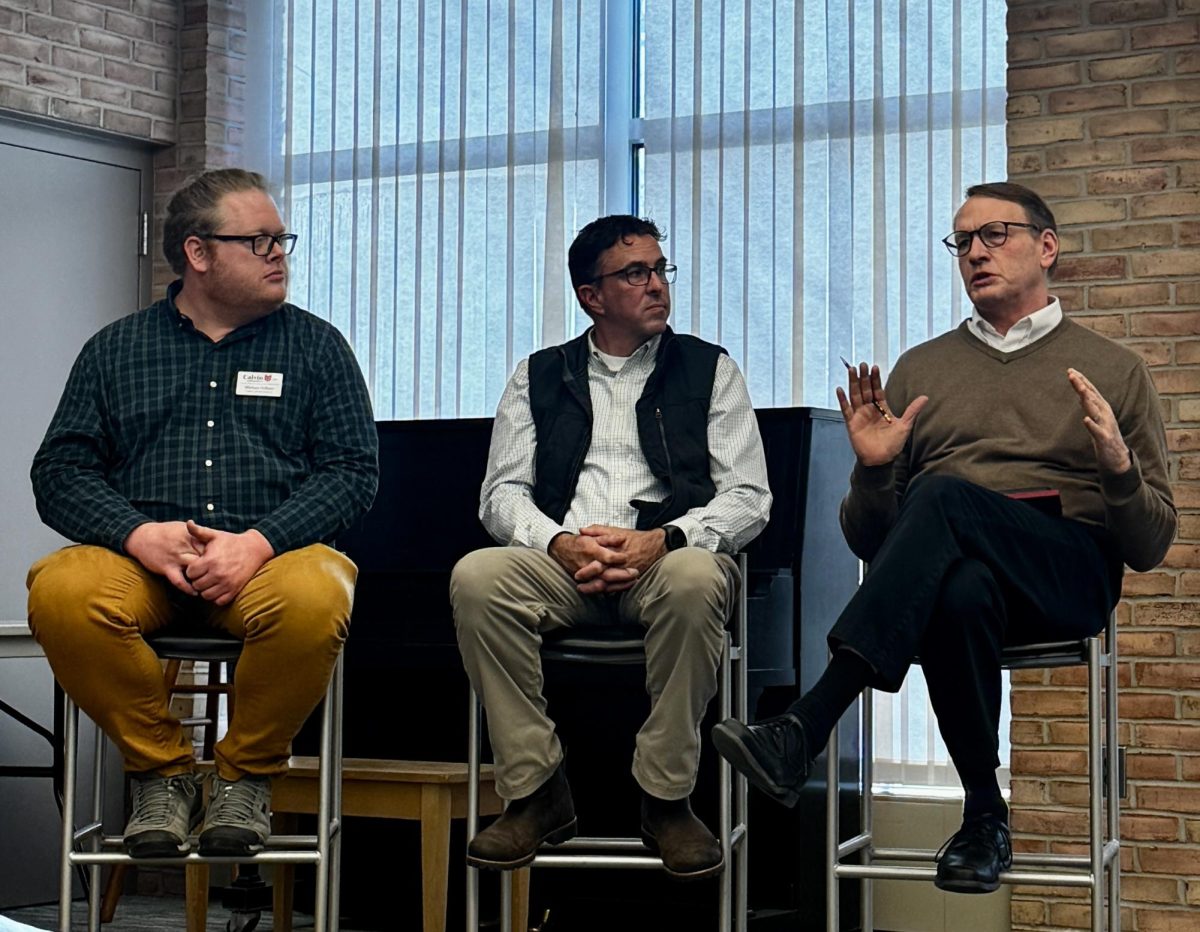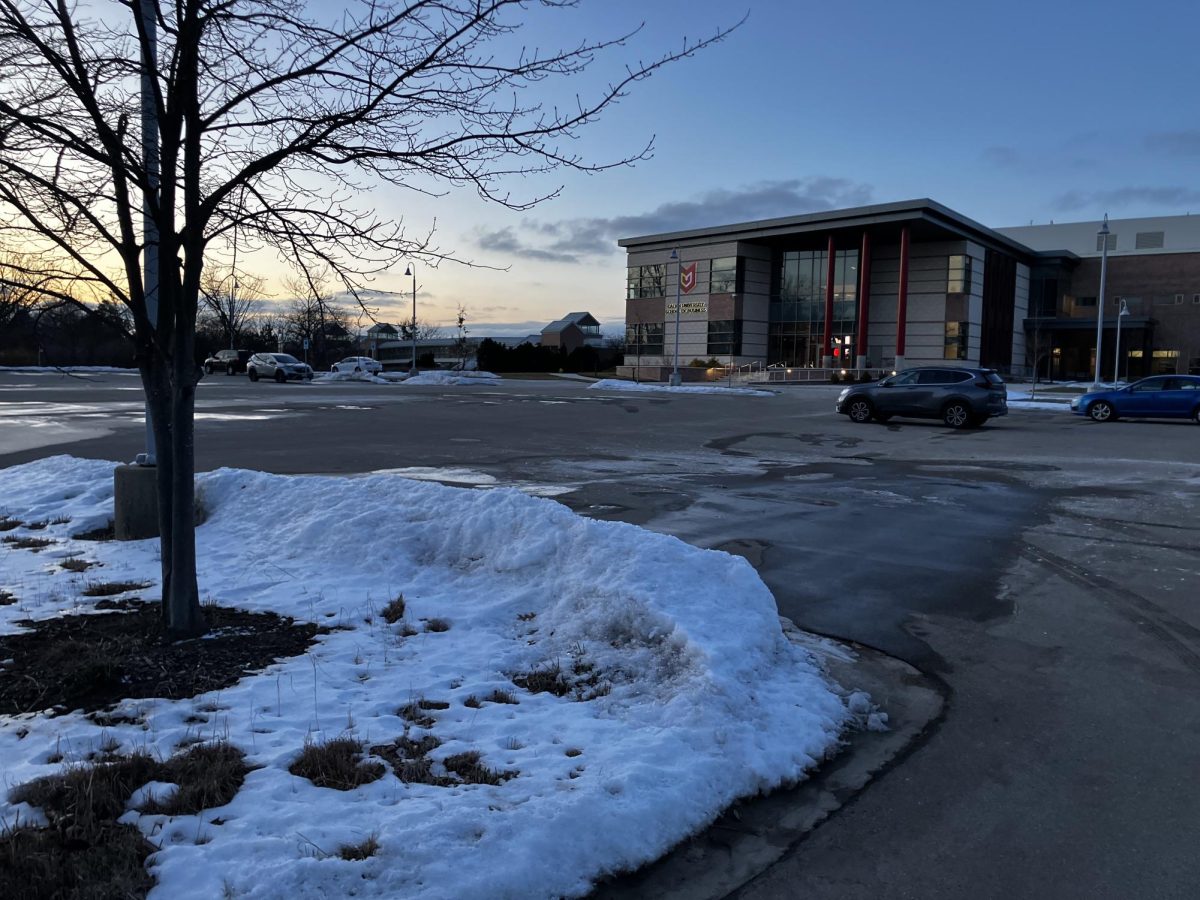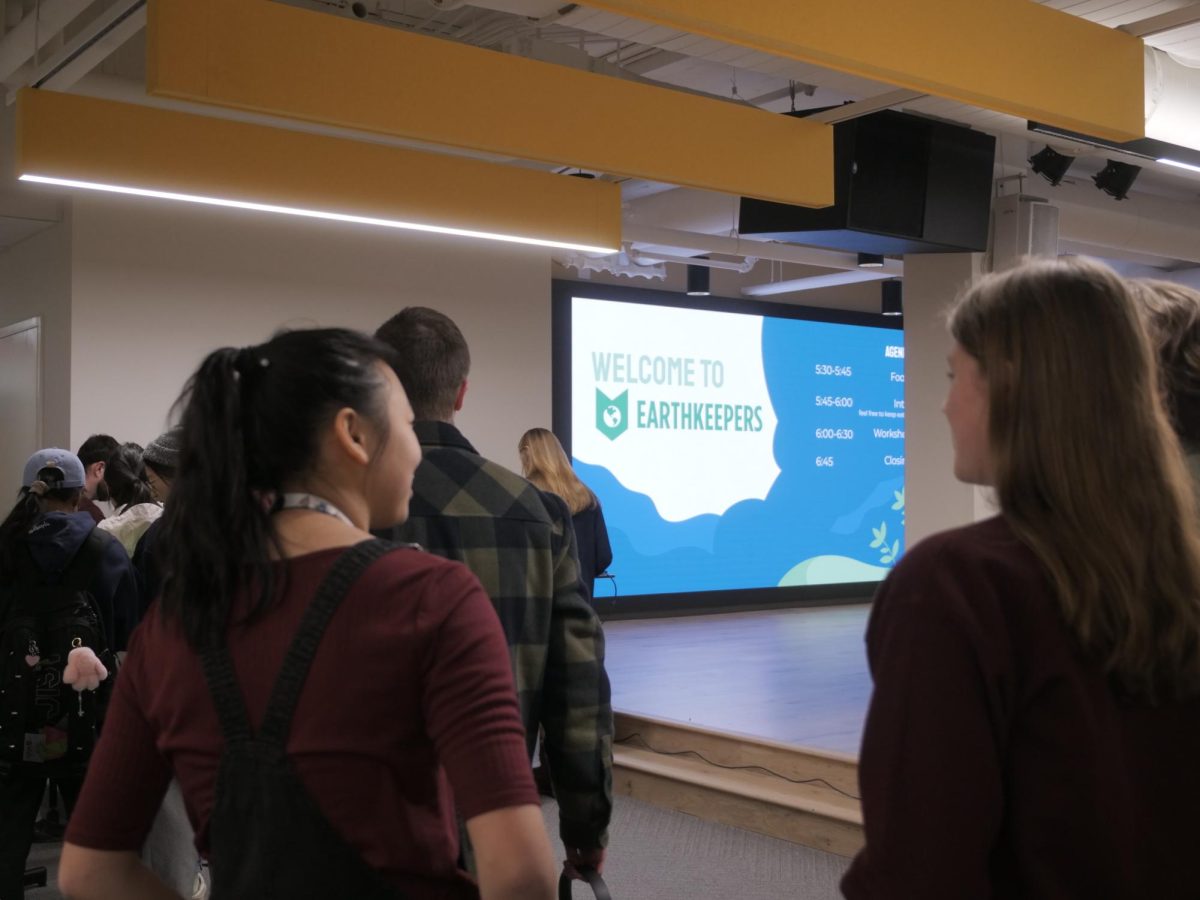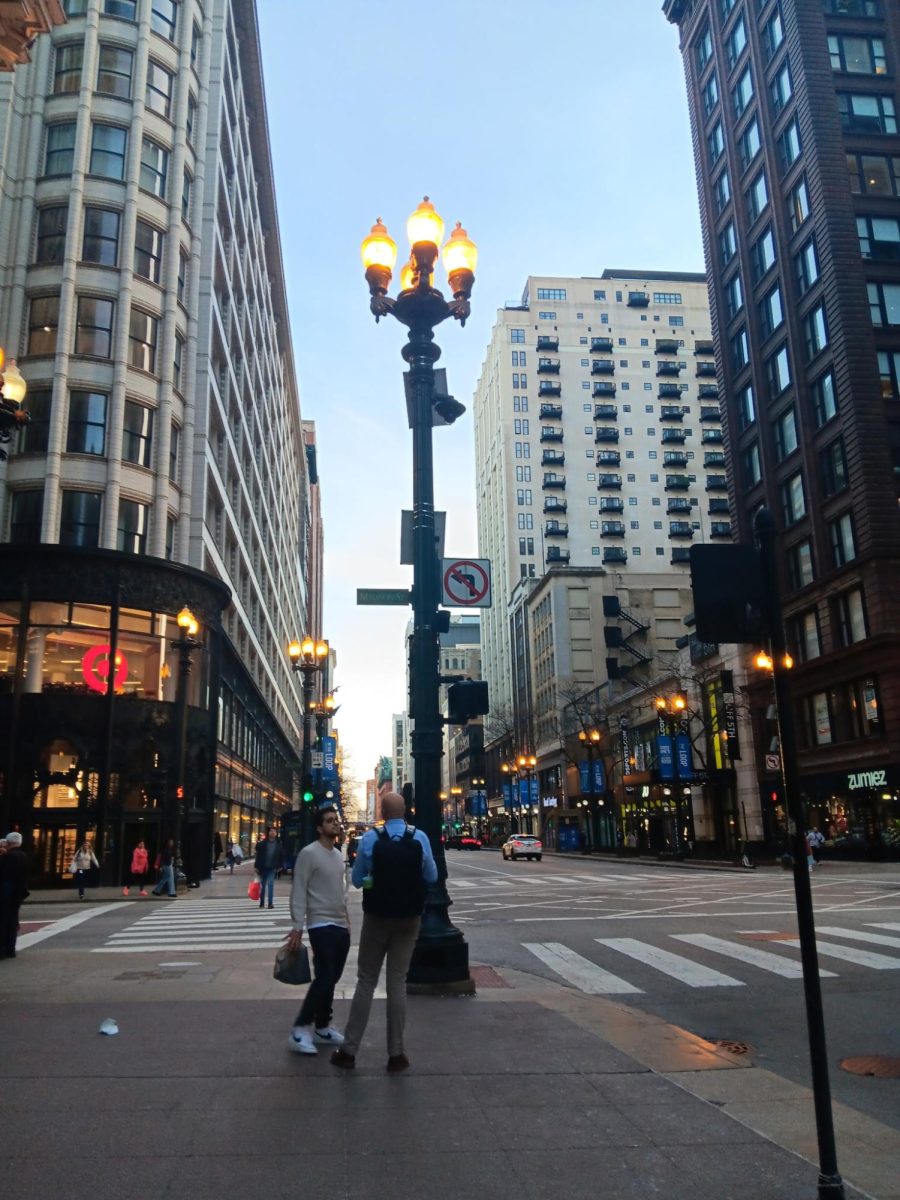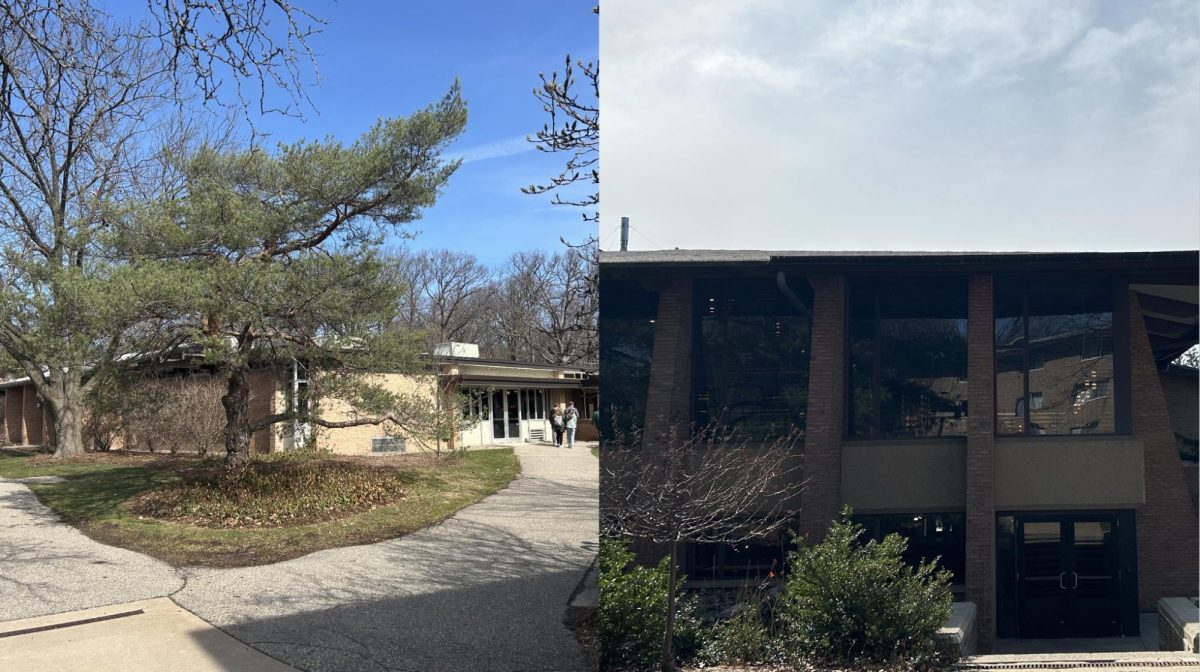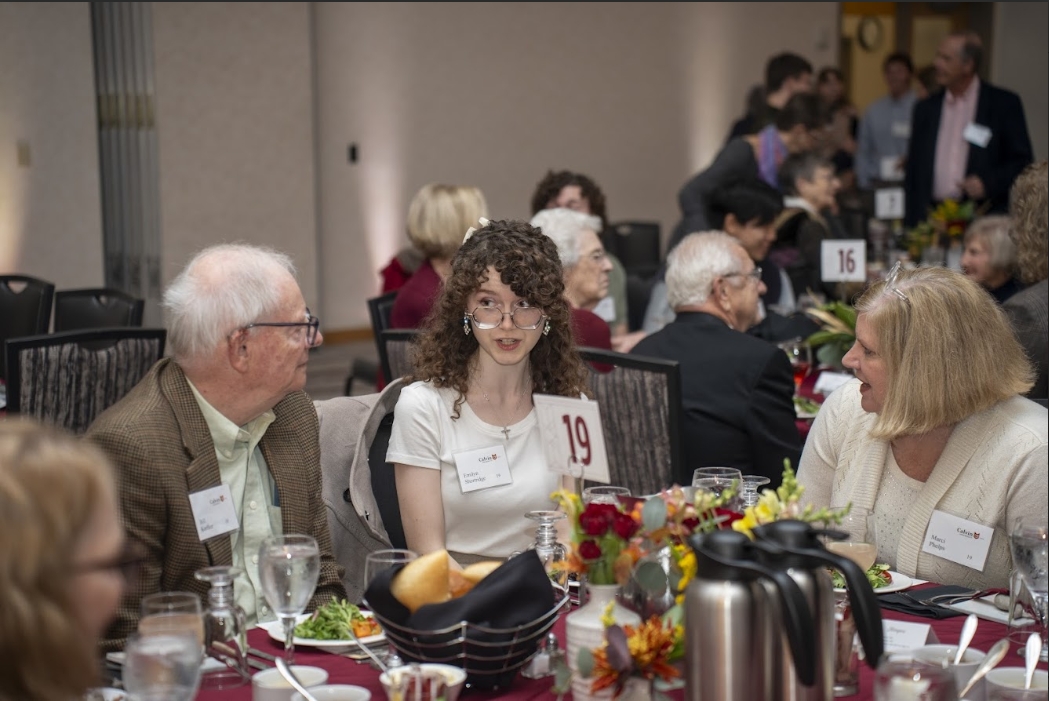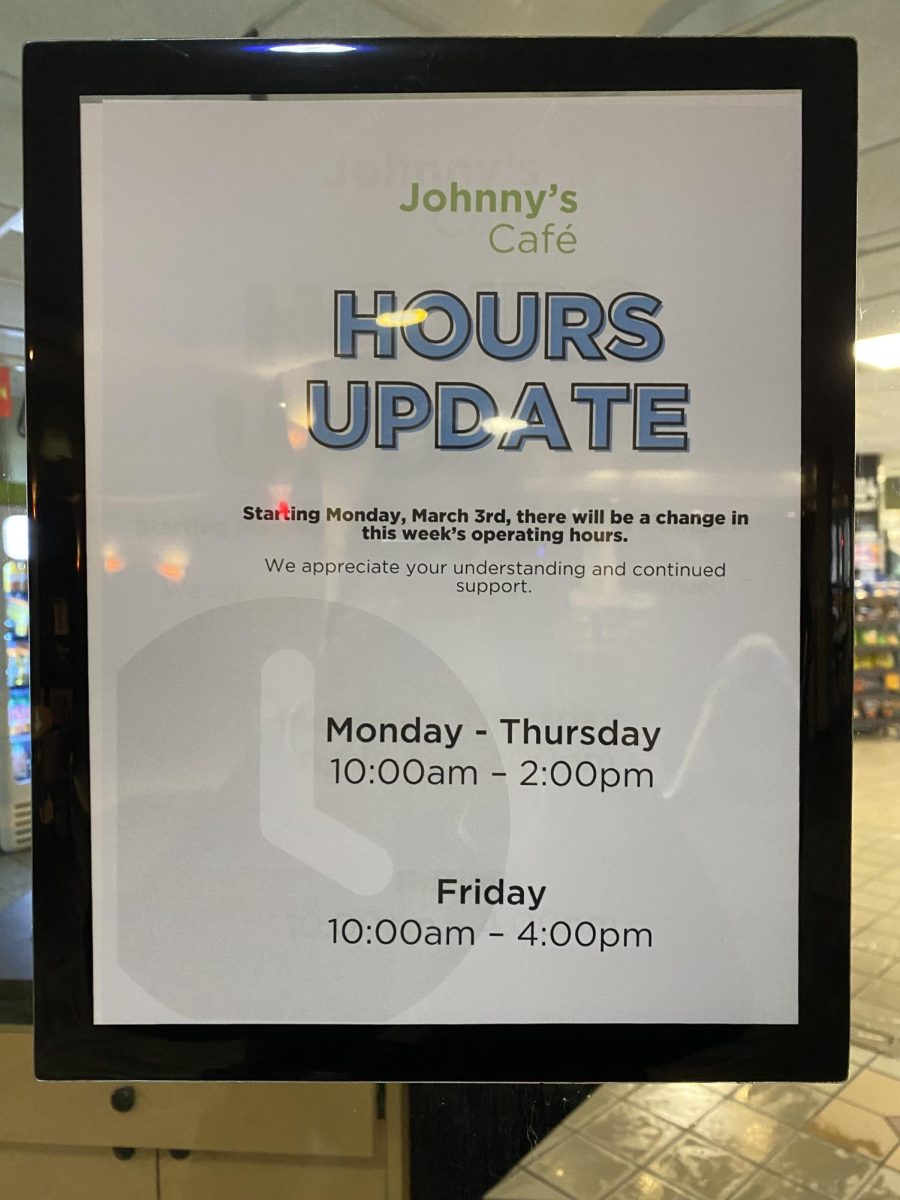Only one year after introducing four new interest-based cohorts, Calvin has announced that the Sustainability Fellows cohort – along with the Health Ambassadors and Digital Life cohorts – has been cut due to a lack of interest from high school students.
The Sustainability Fellows cohort has more than doubled in size since its first year in 2023: increasing from just four students to 14, and already, students were brainstorming ways to get more involved on campus. Because of this growth, members of the cohort were shocked to hear that the program would be shut down.
Freshman Josslin Wright told Chimes that the decision to cut the program felt “so sad and so contradictory” because “we were going to keep bringing in students and making that bigger.” Sophomore Ellen Dhaseleer expressed similar frustrations. “I see [the program] growing in the future and then they just chopped it off,” said Dhaseleer.
History
The new cohort programs were launched in Fall 2023 as part of an enrollment strategy spearheaded by Provost Noah Toly. Calvin brought together the Honors Program, Arts Collaborative, and Ministry Leadership Cohort under one “cohorts” umbrella and added four more: Sustainability Fellows, Common Good Coalition, Health Ambassadors, and Digital Life. According to Toly, cohorts aren’t only about enrollment goals; they also serve as a “high-impact learning practice” and a “great student experience.”
However, due to a lack of interest from high school students, the Health Ambassadors and Digital Life cohorts never accepted students, and this year will be the final group of students in the Sustainability Fellows. Current freshmen and sophomores in the discontinued cohort will continue the program sequence, but no new students will be recruited.
The Sustainability Fellows cohort consists of 10 current freshmen and four sophomores passionate about sustainability work. It encompasses a variety of disciplines, with students’ majors ranging from entrepreneurship to history to engineering. Students in the cohort take Core 100 together and participate in sustainability action workshops in which they collaborate with local community partners to address environmental challenges. They also plan the Faithfully Advancing Sustainability Together (FAST) Conference which brings together high school and college students from around West Michigan to connect with peers and professionals in the field.
The Health Ambassadors and Digital Life cohorts, which failed to attract students, offered a similar opportunity for students from a range of disciplines to study together and collaborate on projects, but with focuses on health sciences and digital life rather than sustainability.
Confusion & Disappointment
Freshman Rebecca Evenhouse joined the Sustainability Fellows out of a desire to connect with other students passionate about creation care. So far, she said, she has found exactly that: a community that “genuinely cares about the environment.” For Dhaseleer, the Sustainability Fellows cohort has connected her to people with similar interests in sustainability and has provided a pathway to other sustainability initiatives on Calvin’s campus.
The students shared a sense of excitement about future opportunities, according to Evenhouse and Dhaseleer. They also share a sense of confusion over the decision to end the program.
“I really just don’t understand the logic,” said Evenhouse.
For Dhaseleer, the decision raises questions about Calvin’s commitment to sustainability. “If they genuinely cared about sustainability and living into that, then they wouldn’t do this…[whoever made the decision] doesn’t know about the students they’re affecting,” said Dhaseleer.
Wright shared similar concerns, noting that even though Calvin has a variety of sustainability-focused programs, the decision to cut the cohort “might be limiting our ways to grow and changing the things that happen around on campus.”
Tom Hartzell, director of the Sustainability Fellows cohort, said that he still believes that Calvin’s commitment to sustainability is “genuine, so this feels out of character with that commitment.” He also fears that the decision to cut the cohort “communicates to students that the investment in sustainability programming for them is being reduced,” Hartzell said.
Hartzell and Ben Gritter, assistant director of Calvin cohorts, learned of the decision in the late summer. Both Hartzell and Gritter told Chimes they were disappointed by the choice to cut the program.
Looking Ahead
Despite disappointment, Hartzell is hopeful for the future of Calvin’s sustainability programming and wonders if the decision “opens the door for a sustainability focused student organization” to continue the work of the Fellows.
Gritter expressed a similar sentiment.“There are still lots of ways we can be creative in engaging students in the good work of sustainability that’s already happening around campus,” Gritter said.
Toly said that the university is “excited about what we might do in digital life, health and sustainability that isn’t exactly a cohort.”
But for Dhaseleer, Evenhouse, and Wright, the answer to the question “what comes next?” is simple: “I really hope they bring the cohort back. It’s a great opportunity,” said Wright.



